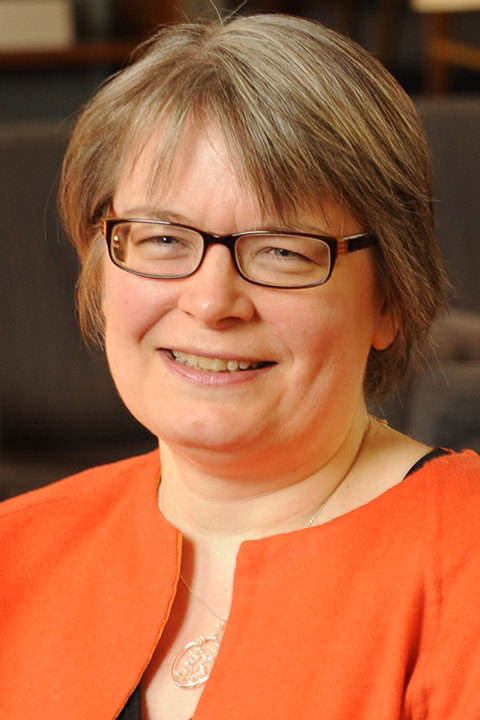Latin American and Iberian Studies
This policy statement covers library collecting from and about Latin America, the Greater Caribbean, Spain, and Portugal. Columbia University Libraries has a long tradition of Latin American and Iberian studies (LAIS) collecting in support of research and learning at the University; additionally, our collection serves as a resource for scholars beyond Columbia. Columbia University had a professorship of Spanish language and literature as early as 1830; however, noteworthy and influential landmarks for the LAIS collections came later with the establishment of the Hispanic Institute (founded in 1920), the School for International and Public Affairs (founded in 1946), and the Institute for Latin American Studies (established in 1962).
An early organizational plan for the Hispanic Institute called for a circulating library of books representing the literature, life and customs, art, architecture, history, and government of Spanish-speaking countries. Columbia University Libraries continues to fulfill and expand that role into the 21st century. The collection is strong in its coverage of Spain, Mexico, Brazil, the Spanish-speaking Caribbean, and the countries of the Southern Cone. Subject strengths include architecture, economic development, history, languages and literature, political science, sociology, and anthropology. Materials are acquired in English, Spanish, and Portuguese and selectively in other European and indigenous Latin American languages. This document outlines the Libraries’ general policy on collections for Latin American and Iberian studies, but it is not intended to be a rigid set of rules; collection suggestions from students and faculty are welcome. (See contact information below.) It is also expected that future changes to these policies would be influenced by emerging fields of study and academic or cultural outputs.
a. Undergraduate
The LAIS collection supports a broad spectrum of undergraduate academic departments at Columbia College (CC), Barnard College (BC), and the School of General Studies (GS). In-depth collecting benefits advanced students in the Department of Latin American and Iberian Cultures, Barnard’s Department of Spanish and Latin American Cultures, the Department of History, as well as undergraduates doing advanced LAIS work in other departments across the humanities and social sciences.
b. Graduate and Professional Schools
The graduate-level, professional, and faculty populations of Columbia University derive particular benefit from the broad spectrum of LAIS resources accessible throughout the Libraries. The collections serve the Department of Latin American and Iberian Cultures, the MA program in Regional Studies--Latin American and the Caribbean (MARSLAC), programs in the School of International and Public Affairs (SIPA), the Columbia Journalism School, the Business School, Teachers College, as well as constituencies in the Graduate School of Architecture, Planning and Preservation (GSAPP) and the Departments of Art History and Archaeology, Anthropology, Economics, English and Comparative Literature, History, Music, Philosophy, Political Science, Religion, and Sociology.
c. Institutes, Interdisciplinary Programs, etc.
The Institute of Latin American Studies is the center for research, teaching, and discussion on Latin America at Columbia University. The Libraries serve the needs of around ninety faculty members across the disciplines affiliated with the Institute. The institute also has a robust fellows and visiting scholars program that brings dozens of scholars each year from around the world to conduct research at the university who are assiduous users of the LAIS collections.
d. Course Reserves
Selection for course reserves is up to individual faculty members. The Librarian will do whatever is possible to secure specific materials absent from the collection.
a. Print
Columbia actively collects print materials published from and about Latin America, the Caribbean, Spain, and, to a lesser extent, Portugal on the following broad subjects: anthropology, architecture, archaeology, communication (including Journalism), cultural studies, economics, fine arts and art history, graphic novels, history, literature, music and dance, religion, political science and government, sociology, and general reference and bibliography. Columbia collects selectively in the fields of education and public health in these regions and on an as-needed basis in the fields of linguistics and social work. Location for content is determined according to discipline. See the section on “Selection for ReCAP” for decisions regarding on-site and off-site shelving locations.
b. Digital Collections
Columbia University Libraries offers a robust selection of electronic resources. These include e-book collections such as Digitalia Hispánica and Digitalia Catalan, which complement and expand our print monograph and serials collections. Edited volumes and anthologies are acquired as e-books whenever possible. The LAIS collections benefit from the myriad of e-book packages, electronic journal bundles, and electronic reference sources acquired for the general collection. We strive to acquire relevant digitized primary source databases and archives as they appear. These include collections of historical newspapers, pamphlets, vertical files, and datasets published by commercial vendors. We provide access to several indexes such as the Hispanic American Periodicals Index that make secondary literature in the field discoverable. Columbia University Libraries participates in several web archiving efforts that seek to preserve online content related to human rights and contemporary art in Latin America as well as Brazilian government websites.
c. Media
Columbia strives to collect a representative sample of cinema and documentaries from the covered regions. Presently these are mostly acquired through DVDs although a retrospective VHS collection is held in the Butler Media Collection. Media used for curricular purposes is prioritized. A representative collection of contemporary Brazilian music CDs is acquired collaboratively with the Music & Arts Library.
d. Languages Collected
We collect English-, Spanish-, and Portuguese-language materials extensively. Other European and indigenous Latin American languages are collected selectively.
e. Chronological Focus
There is no imposed chronological limit in our collecting, however the focus of collection activity is Late Middle Ages to the present day for Iberian content and the Colonial era to the present for the Americas.
f. Geographical Focus
Spain, Portugal, Latin America, the Caribbean (including the non-Hispanic Caribbean). Caribbean content is acquired in collaboration with the Librarian for French & Romance Literature & Language and/or the Librarian for British & American History & Literature where appropriate. Latino/a studies material is collected by the Librarian for British & American History & Literature.
g. Imprint Dates Collected
The main focus of collecting is current and recent (+/- three years) imprints. When antiquarian acquisitions are offered via gift or purchase, no specific chronological ranges are established in advance; rare or unique materials from any period may be considered.
Columbia strives to collect a representative sample of Fine Press and artist books from Latin America, the Caribbean, Spain, and Portugal. We actively collect samples of Cordel literature from Brazil. These are housed in graphic arts collection in the Rare Book & Manuscript Library (RBML). Other noteworthy LAIS holdings are the Lester Ziffren Collection of Tauromachia (a collection on bullfighters and bullfighting), the Argentina Project: Oral History, 1971--1973, material on Spanish Jewry and its diaspora, the Herbert L. Matthews Papers that contain his journalistic coverage of the Cuban Revolution, and relevant material in the Center for Human Rights Documentation & Research. The Latino Arts & Activism collection identifies, acquires, preserves, and makes accessible the papers and records of Latinos, Latino organizations, and other figures, primarily in and around New York City, that may be of enduring significance as research resources. The strength of these collections are in Latino arts, literature, and culture, Latino politics and organizing, and links between Latinos in the U.S. and their countries of origin. Active RBML collecting programs are outlined in this “What We Collect” page.
The LAIS Librarian also collaborates with the Avery Curator of Classics and the Collection Services Librarian at the Burke Library at Union Theological Seminary to identify and acquire LAIS special collections material within the scope of those collections.
a. Consortia and Collaborative Collecting with Other Institutions
Columbia’s Latin American and Iberian studies collections are at the nexus of several collaborative efforts that attempt to maximize access to the vast and diverse publishing outputs of these regions. These efforts include: 2CUL, a partnership between Columbia and Cornell University Library established in 2012 whereby the LAIS Librarian who selects for both collections targets eliminating unnecessary duplicate acquisition of low-use print materials published in the region, primarily in Spanish and Portuguese, and redirects resources toward acquiring additional materials, often in new collecting areas. Materials are easily requested by students and faculty on both campuses via Borrow Direct.
The Manhattan Research Library Initiative (MaRLI) is a joint borrowing program between The New York Public Library, New York University, and Columbia, which serves as a means to expand access to our research collections in order to better serve our researchers. In addition to reciprocal borrowing, MaRLI institutions have negotiated LAIS electronic resources jointly and strategize on collecting directions that could benefit all the partners. Columbia participates in the Ivy Plus Library Confederation’s Brazil monographs project which shares in-depth collecting responsibility for Brazilian regional publishing. The participating institutions commit to collecting along state lines with Columbia focusing jointly with Cornell on the states of the Brazilian Northeast.
In addition to these regional efforts, Columbia serves the national network through its in-depth collecting commitment to publishing from the Dominican Republic, architecture publishing from Latin America, and the social sciences in Brazil. These latter commitments are part of the long-standing Latin American Research Resources Project’s Distributed Resources Program, an agreement between participating North American libraries designed to strengthen the collective coverage of monographs and other resources produced in Latin America.
b. Location Decisions & Selection for ReCAP
Due to on-campus space limitations a significant amount of new print acquisitions are sent to the Libraries’ off-site storage facility (ReCAP). The following outlines general guidelines for on-site and off-site shelving locations:
Major university press and trade publishers, reference works, faculty authors, award-winning authors, and monographs on major artists are kept on site. Most art and architecture monographs as well as those in business and economics, education, environmental science, and public health are kept off site. Regional publishing and local histories are kept off site. Material in European languages other than Spanish, English, and Portuguese are kept off site. ReCAP also houses and provides ideal preservation conditions for books with frail or nonconventional binding.
Duplication of titles is limited to works identified by faculty as being central to a specific course. In these cases, no more than a few copies are obtained, one of which should be placed by the faculty member on reserve. Whenever possible an e-book equivalent is preferred for duplication.
Deduplication only takes place when a title has been identified for relocation to ReCAP and a copy already exists on shelf at that facility. Even in this instance, the Librarian will inspect the local copy for any unique features/unusual provenance before assenting to deduplication.
c. Deaccessioning
Titles are generally deaccessioned only in cases where the physical copy is disintegrating and no longer serviceable in print/physical format. In these instances, the Librarian will evaluate whether to make a preservation photocopy, to create or acquire a digital surrogate, and/or whether to replace the physical copy with another. Resources on obsolete formats are reviewed by librarians on a case-by-case basis; in instances where the original format has artifactual value, it will be retained even after it has been digitized or otherwise reformatted. Distinctive collections held in the Rare Book & Manuscript Library, the C. V. Starr East Asian Library, Avery Architectural & Fine Arts Library, and the Burke Library at Union Theological Seminary are not deaccessioned.
d. Digitization and Preservation
As needed, titles in our special and circulating collections are evaluated by staff of the Libraries’ Preservation and Digital Conversion Division (PDCD).

Jane Siegel
Rare Book Librarian
- Rare Book & Manuscript Library

John L. Tofanelli
Research Collections & Services Librarian
- Humanities & History
Last updated: January 2019